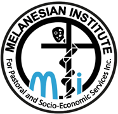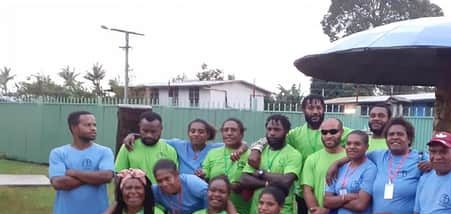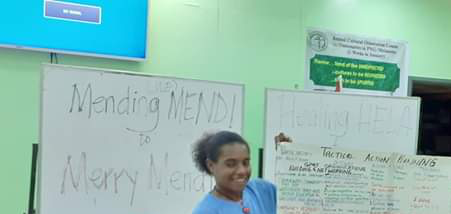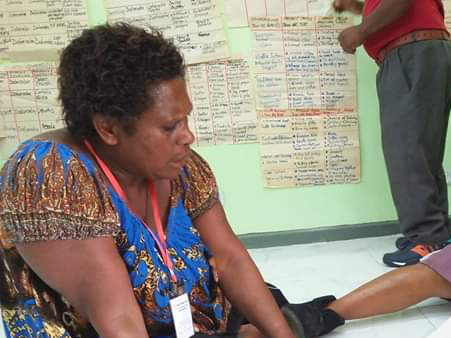Log In
Sign Up
Counselling (psychologist), social work or social communication for Melanesian Institute in Goroka, PNG C.M.

- September 1, 2020
Service start date:
The Melanesian Institute (MI) won a competitive process to be selected to support UN Women to undertake Peacebuilding activities in Southern Highlands and Hela Provinces as part of UN Women’s “Gender and Youth Promotion Initiative (GYPI)” project. MI was selected for this work due to its strengths in upholding social inclusion and its ability to engage and strengthen grassroots communities through participatory development processes. This is a one-year project (October 2019-September 2020), but the grassroots peacebuilders action teams (GPAT) that have been built up through this process become community hubs of the Melanesian Institute. These community hubs will continue receiving technical support (e.g. local capacity building in counselling, community mobilisation, consciousness raising, promotion of their context specific peace building initiatives through social media, website, etc.) from Melanesian Institute beyond the GYPI project timeframe.
History, activities and strategies of the Melanesian Institute
History
The Melanesian Institute for Socio-Pastoral and Economic Service, Inc. (MI) emerged out of the collaborative efforts among the major missionary societies in Papua New Guinea during the late 1960s. The prospect of forming an Institute for ‘missionary orientation’ was inspired by the transformative thrust of Vatican II as a strategic response to the ‘signs of the times’, in particular, the challenges of inculturating the mission and evangelization in PNG/Melanesia. MI was established to address a common agenda among expatriate missionaries from the different religious societies to respect, understand and adapt their missionary services to the diverse Melanesian cultures and socio-pastoral contexts. The ‘founding fathers’ (Missionary-Anthropologists) from the 3 religious societies (Divine Word Missionaries (SVD), Sacred Heart Missionaries (MSC) and Marist Missionaries (SM) proposed the plan to the Conference of the Association of Clerical Religious Superiors (ACRS). The proposal to put up a ‘Socio-Pastoral Institute for Melanesia’ was favorably considered by the ACRS, and the collaborative venture took off with an inaugural Cultural Orientation Course (COC) from November 17, 1969 to January 31, 1970 in Vunapope, East New Britain, PNG.
MI has recently reached an institutional milestone on the 11th of January, 2020, marking 50 years of sustained formative services to the missions in PNG/Melanesia. The ACRS through the different member-religious societies continues to consistently send missionaries with relevant skills and academic qualifications to work at MI. They carry out analytical study on the changing socio-cultural contexts in order to: underscore the relationship between Christianity and Melanesian cultures for relevant cross-cultural ministry; locate key themes and issues for the development of a Melanesian understanding and expression of the Gospel, Church and Theology; and evaluate the socio-economic and political fields and their challenges to promoting integral human development. Over the years, MI has worked around key themes such as: Christianity, Melanesian Culture and Society; Melanesian Culture, Church Life, Communities and Ministries; and Socio-Economic Development Issues for Church concern in Contemporary Melanesia.
Activities
MI promotes the understanding of indigenous customs and the impact of socio-cultural changes on diverse Melanesian societies to enable the Churches and missionaries to respond effectively. As a Socio-Pastoral Institute in the Melanesian region, MI continues to facilitate cross-cultural learning, inter-faith dialogues, inculturation and contextualized ministries through an integrated approach involving: (a) social researches (b) pastoral education and culture-related courses, (c) writing and publishing, (d) grassroots development.
The integrated socio-pastoral services and strategies underscore the integration of the ‘knowledge process’ (generation, production, and promotion) as well as the interplay of Melanesian Culture, Christian Faith and Indigenous Societies coping with impact of rapid social change.
- Cross-disciplinary and Action researches are carried out to build up local/ indigenous knowledge, critical analysis and scientific evidences as catalyst for culture-sensitive social transformation.
- Cultural Orientation and Socio-Pastoral courses are organized to promote critical understanding of the diverse PNG/Melanesian cultures, the impact of social changes, and the emerging challenges to missionary and development work in PNG/ Melanesia.
- Relevant studies, papers, articles as well as educational materials are published for information and cross-cultural learning.
- Socio-economic development initiatives are promoted by building the capacities of the most affected grassroots communities and vulnerable sectors.
Structure
The Institute is legally registered with the Government of Papua New Guinea as a non-profit civil society organization, with the ACRS (Association of the Religious Superiors) as the ‘legal custodian’. The current Board of Governance is composed of representatives of the different ‘institutional members’: the ACRS, the Society of the Divine Word (SVD), the Catholic Bishops Conference of PNG and Solomon Islands (CBC), and the 3 other mainline Churches in PNG (Anglicans, Methodists, Lutherans). The Management, Administration and key Program Units (Social Research, Pastoral Education, Publication, Grassroots Development) draw on the collaboration of local Melanesians and expatriate missionaries with relevant academic qualifications and missionary commitment. MI further engages with key institutions and stakeholders (Faith-based Organizations, Academic Institutions, Government Agencies, Development NGOs, International partners, multi-sectoral networks) based on shared thematic agendas.
Project Images:



- Oceania
Local language:
EnglishFacilities:
The volunteer will be stationed at the Melanesian Institute in Goroka town and if he/she will be involved in fieldwork research and grassroots learning process. The volunteer will travel together with MI staff.
The Melanesian Institute is located at the heart of Goroka town. MI has a quiet, safe and peaceful working and residential environment for Papua New Guineans and expatriates staff. It has these facilities: spacious offices for staff, Library (it holds 16,000 items about sociology, anthropology, Melanesian cultures and languages ranging from movies, magazines, newspapers, books, and articles, to DVD, CDs and tapes), Accommodation (flats are fully furnished and self-contained with a twin share kitchen and a common laundry area), guest house (MI has a fully furnished guest house containing three bedrooms, a common kitchen and dining area and is self-contained.) and 3 Conference rooms that can cater for 25 up to 180 people.
- Housing
- Community Living Opportunity
Other:
Housing for volunteers and staff
Community living opportunities. Goroka town parish communities and MI community hubs can be an opportunity for volunteers to have direct contacts with ordinary Papua New Guineans and to learn on how they are going about their everyday life.
Timing of Service Opportunity: Flexible duration
5 days per week (there will be a flexibility about this maximum number of days for the service if the volunteers have important business to attend to. The service will be more on capacity building for grassroots communities and MI Staff such as giving in giving thematic courses, creating simple and friendly reading materials and coaching).
Fulltime required?: Yes
Required time commitment: 6 months to one year, flexible. 35-37 hours a week.
This opportunity is open to: Both Men and Women
Number of volunteers needed: 2
Can families volunteer?: Yes
Training requirements:
We can be flexible with regard to formal qualifications, subject to experience. For instance: BA, MA (PhD), Diploma in Social work, counselling, Anthropology, ICT etc. We would be happy to have people with ICT background for upgrading MIs website, training local staff on managing electronic library and social media, and people who have skills and knowledge in publication and social research software programs.
- English
Salary or living allowance
Insurance: the volunteer must have their own
Overview
-
Date Posted:
-
Title: Counselling (psychologist), social work or social communication for Melanesian Institute in Goroka, PNG
Apply for this opportunity
- Service end date:
- September 30, 2021
